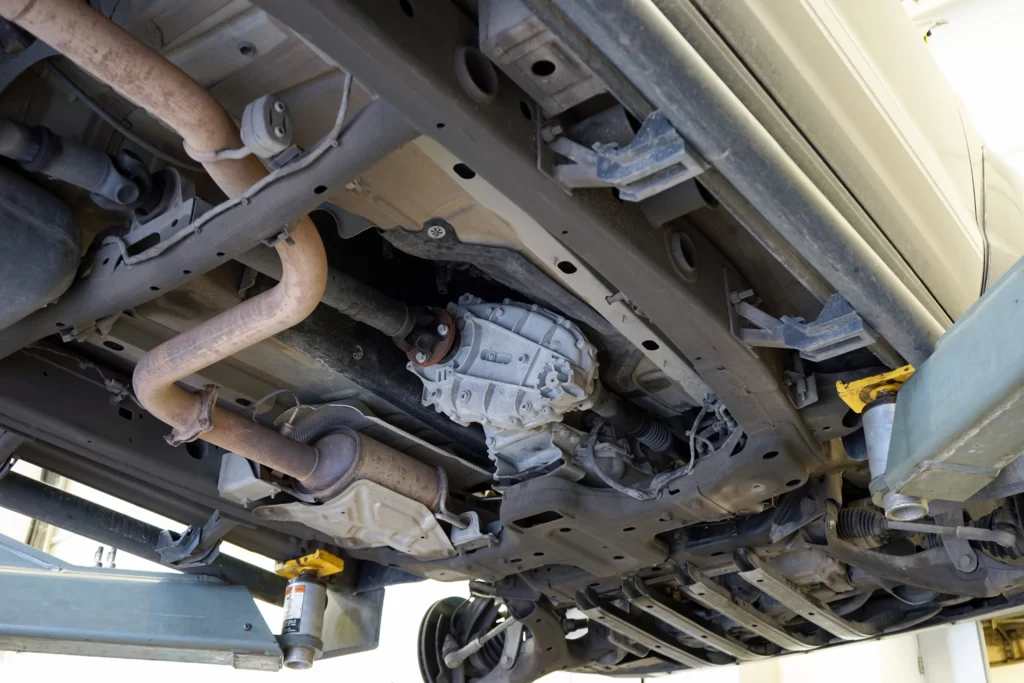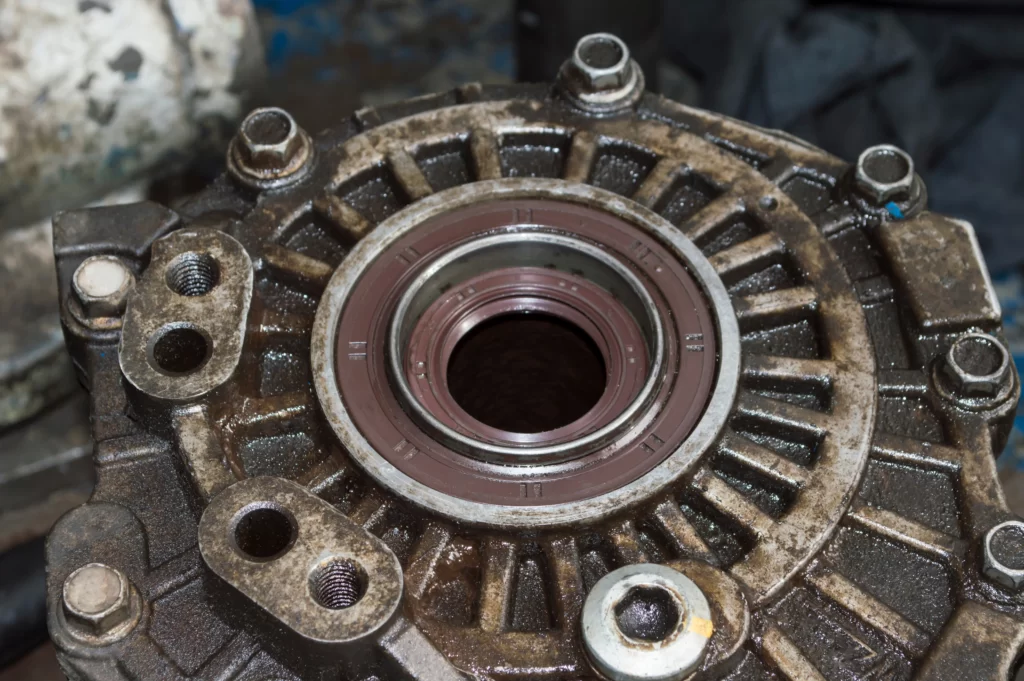
Transfer cases, often overlooked but crucial, play a significant role in the performance of 4-wheel drive (4WD) and all-wheel drive (AWD) vehicles in Alton, IL. It serves as the link between the transmission and the front and rear axles, enabling power distribution to all four wheels, making it indispensable for off-road adventures and ensuring stability in various road conditions. In this blog, we will delve into the topic of bad transfer cases in cars, discussing common signs of trouble, potential causes, and the steps to remedy the situation.
Understanding the Transfer Case
The transfer case is a mechanical component found in 4WD and AWD vehicles. Its primary function is to distribute power from the transmission to both the front and rear axles. This allows drivers to switch between different drive modes, such as 2WD, 4WD, and low range 4WD, depending on road conditions and terrain. By doing so, the transfer case enhances traction and control, making it an essential part of vehicles built for rugged terrain or challenging weather conditions in Alton, IL.
Common Signs of a Bad Transfer Case
- Unusual Noises: One of the most noticeable indications of a failing transfer case is strange noises. These may include grinding, clunking, or whining sounds when shifting between drive modes. These noises often suggest internal problems, such as worn gear or damaged bearings.
- Difficulty Shifting: If you have trouble when shifting between drive modes, particularly when switching from 2WD to 4WD or vice versa, it’s a potential red flag for transfer case issues. You may feel resistance or need to exert extra force to engage the desired mode.
- Fluid Leaks: Leaking transfer case fluid can lead to low fluid levels, which can cause overheating and internal damage. If you observe reddish or brownish fluid puddles beneath your vehicle, it’s crucial to investigate and address any leaks promptly.
- Binding or Shuddering Sensation: When the transfer case is malfunctioning, it can lead to inconsistent power distribution, resulting in a binding or shuddering sensation, particularly when turning or driving on dry pavement.
- Warning Lights: Some modern vehicles equipped with electronic transfer cases have dashboard warning lights that illuminate when there’s a problem. If you notice the 4WD or AWD warning light, it’s advisable to have the system inspected.
Potential Causes of Transfer Case Problems
Several factors can contribute to a bad transfer case:
- Lack of Maintenance: Neglecting regular maintenance, including changing the transfer case fluid, can accelerate wear and lead to premature failure.
- Fluid Contamination: Contaminated or low-quality transfer case fluid can result in internal damage, reducing the component’s lifespan.
- Overheating: Excessive use of 4WD on dry pavement or in high-traction conditions can overheat the transfer case, causing damage to internal components.
- Off-Roading and Hard Use: Vehicles used for off-roading or subject to heavy loads are more likely to experience transfer case issues due to increased stress and wear.

Addressing a Bad Transfer Case
If you suspect a problem with your transfer case, it’s essential to address it promptly to prevent further damage and ensure the safety and performance of your vehicle. The steps to address a bad transfer case typically involve:
- Diagnosis: Consult a qualified mechanic or technician to diagnose the issue accurately. They will perform a visual inspection, test the transfer case, and possibly examine the transfer case fluid for signs of contamination or wear.
- Fluid Replacement: If the transfer case fluid is degraded or contaminated, it’s crucial to replace it with the manufacturer-recommended fluid to ensure proper lubrication and cooling.
- Repairs or Replacement: Depending on the severity of the problem, your mechanic may recommend repairing the transfer case or replacing it entirely. This decision will depend on the extent of the damage and the cost-effectiveness of repairs.
- Regular Maintenance: To prevent future issues, follow the manufacturer’s recommended maintenance schedule, including regular transfer case fluid changes.
Dose your vehicle have a bad transfer case around Alton, IL? Call Marshall’s Transmission Service today!